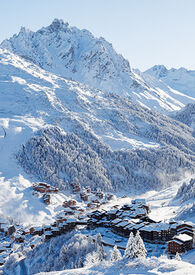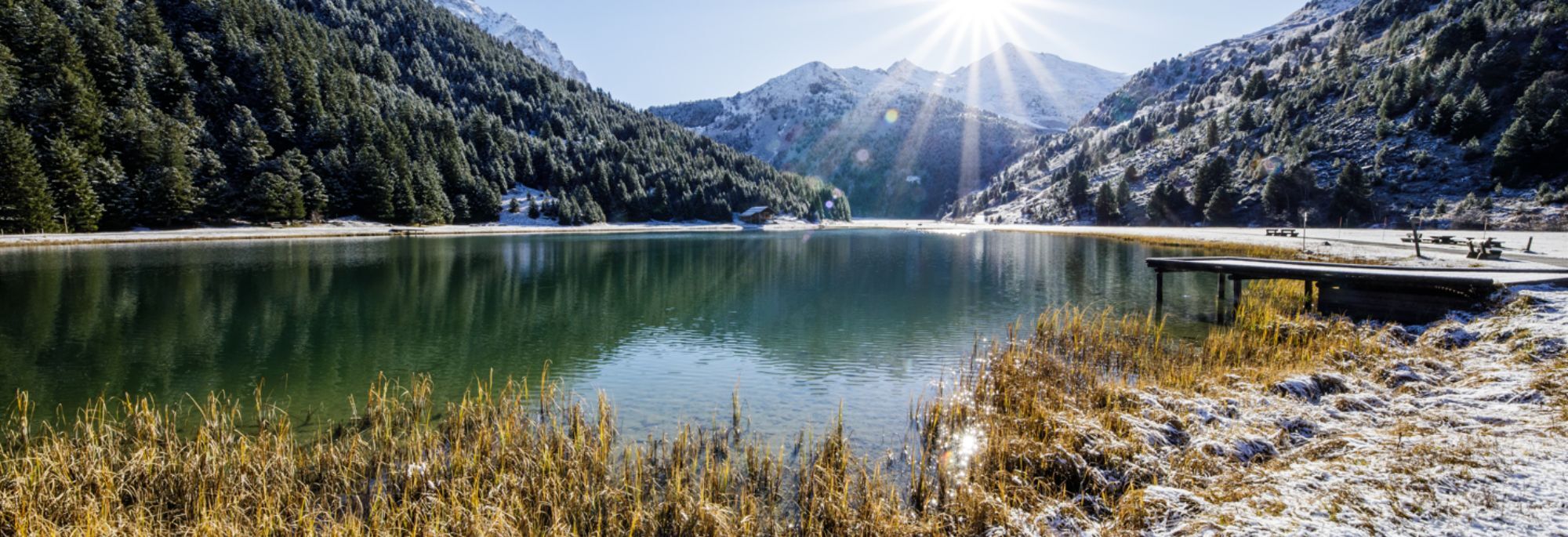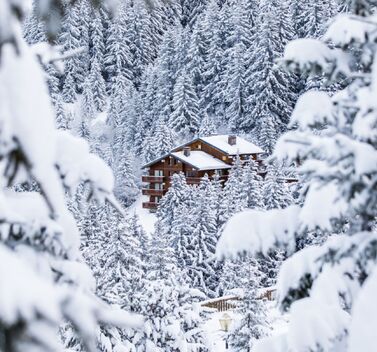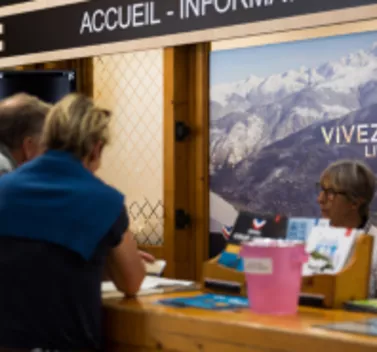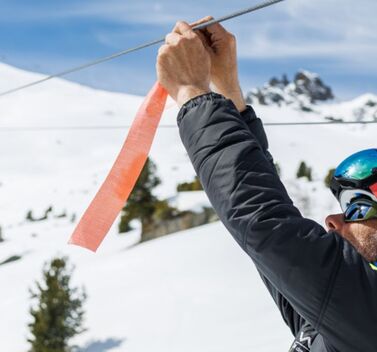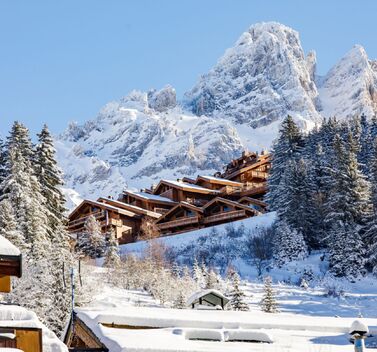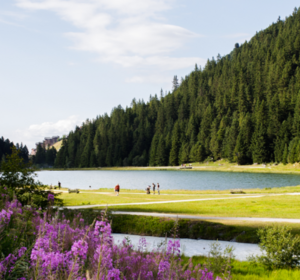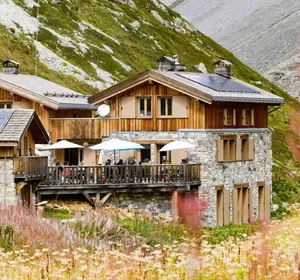
Méribel’s commitments
What is at stake?
These days, the term ‘climate emergency’ has become a global reality, with its effects visible everywhere and to everyone. Mountain areas have not been spared, and some ski resorts are having to adapt much more quickly than expected.
Méribel, located at the heart of les 3 Vallées, the largest ski area in the world, and with over 80% of its skiable terrain above 2,000 metres, fortunately will be welcoming winter visitors for many years to come. However, it is unthinkable to wait until we are against the wall before taking action.
Action to transition towards sustainability in the mountains; action to reduce as much as possible the environmental impact of mountain holidays and the operation of ski areas; and action to ensure the preservation of our valley: all these are essential if we wish to leave this exceptional area intact for future generations.
Méribel takes action
This is why, in 2021, the Town Hall of Les Allues, the original village of the valley, decided to commit fully to the ecological transition of its territory. As a pioneer, the commune has not only launched an initiative, it has chosen to mobilise all the local players to work together to build a more sustainable mountain model.
Méribel was awarded a Flocon Vert (Green Snowflake quality award) in December 2024 in recognition of the important commitment and efforts already made over several years by all the players in the area.
The carbon impact of a ski holiday
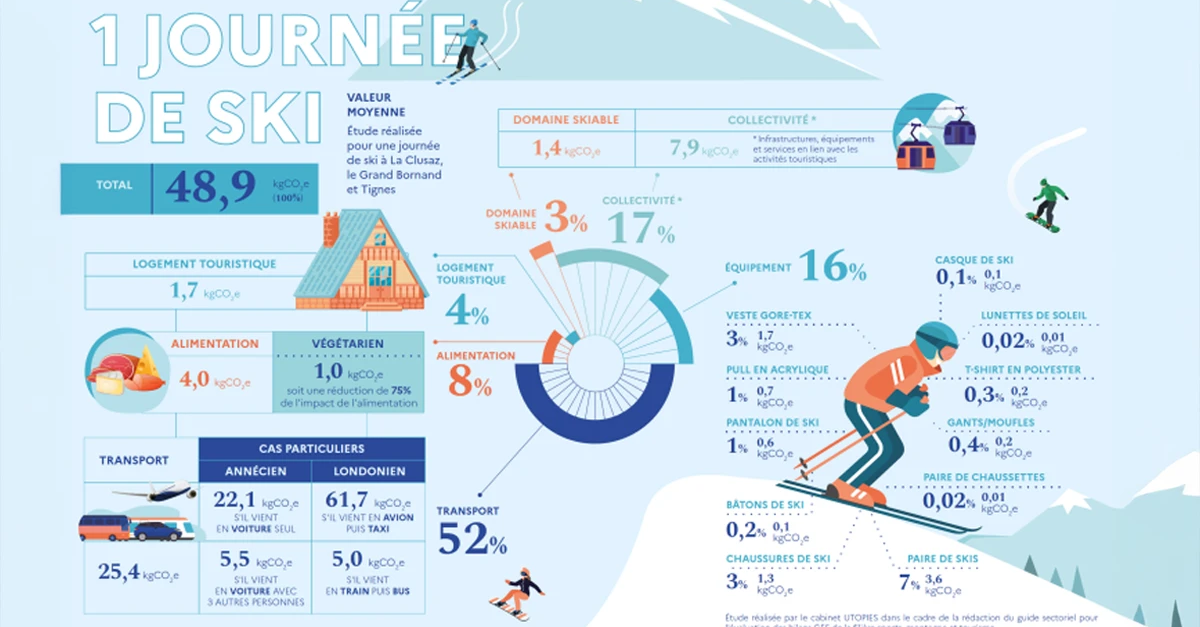
Before discussing ecological transition, it is important to understand the carbon impact of a winter holiday in the mountains. A study commissioned by ADEME and carried out in collaboration with AIR Coop has highlighted the main items that make up the carbon footprint of a ski holiday. A graph accompanying the study makes these results more accessible and easier to understand.
The study highlights the priority issue for all mountain resorts: transport. Transport accounts for 52% of the carbon footprint of a holiday. Our role is to work together with local, regional and national authorities to facilitate access to low-carbon modes of transport, in order to offer our visitors simple and easily accessible options. Once these solutions are in place, we can more easily encourage our visitors to choose low-impact modes of transport.
A global approach
Transport cannot be the only area of focus for a tourist destination. All the other factors also deserve our attention if we are to minimise the resort’s carbon footprint and, more generally, its environmental impact.
That’s why the Méribel 2038 approach is multi-themed and multi-partnered, to work effectively on all aspects of the ecological and social transition, at all levels of society.
How can I get involved as a holidaymaker?
For those who want to enjoy the magnificent snow-covered mountains while helping their preservation, it is possible to contribute to this common endeavour. Everyone can participate according to their own priorities and abilities.
Here are a few examples of simple, effective ways of reducing the ecological impact of a ski holiday:
1. Choose transport with low CO2 emissions
Transport accounts for 52% of the carbon footprint of a ski holiday. To reduce this impact, it is essential to use low-emission forms of transport:
- Rail: this is the most carbon-efficient mode of transport, with the Moutiers Salins Brides-les-Bains station located close to Méribel. Shuttles such as Altibus and Alpbus provide easy access to the resort from the station.
- Car-sharing: reducing the carbon footprint of a car journey depends on the number of passengers. Encouraging car-sharing can significantly reduce the impact. Many apps, such as BlaBlaCar, facilitate this practice. A daily version of the app even encourages carpooling for local workers’ daily journeys, with the département paying part of the cost.
- Buses: there are regular bus services to many towns and stations in the Auvergne Rhône-Alpes region, linking the major resorts in the Alps.
Once in the resort, continue to use public transport:
- Lift transport: gondola lifts such as the Olympe (from Brides-les-Bains to Méribel) and Les Chalets (from Méribel Mottaret to Le Hameau) are now open for prolonged periods, making it easier to get around.
- Free shuttle buses: buses powered by plant-based fuel run in the resort and between the various villages in the valley, reducing the impact of local travel.
2. choose eco-responsible accommodation
The environmental impact of accommodation can be reduced in two ways:
- Opt for eco-committed accommodation: choose accommodation awarded the Clé Verte, and which is well insulated and implements sustainable practices (renewable energy, waste management, reduced water and energy consumption, energy renovation, etc.).
- Heat your accommodation sensibly: instead of turning up the heat when you get back from skiing, wear a fleece and turn down the heating when you’re on the slopes.
3. opt for second-hand or rental equipment
The manufacture of new equipment (skis, snowboards, boots, helmets, etc.) generates a large carbon footprint because of the resources required. By choosing rental or second-hand equipment, you’re helping to extend the life of existing equipment and avoid the need to manufacture new products. In addition, on-site hire avoids the need to transport bulky equipment, thereby reducing the carbon footprint associated with transportation.
4. Respect nature and biodiversity
To preserve our natural environment, a number of actions are essential:
- Respect the quiet zones and boundaries of the Tueda Nature Reserve: off-piste skiing can disturb sensitive ecosystems. Quiet zones have been set up to protect species such as the rare black grouse. It is important to respect the boundaries of these protected areas.
- Don’t leave any rubbish in the ski area: a forgotten piece of packaging or a map that has fallen out of your pocket can cause lasting pollution. Keep your eyes open and, if you see any rubbish, pick it up and dispose of it in the nearest bin.
5. Eat locally and reduce waste
- Eat locally: choose restaurants and shops that offer local and seasonal produce.
This reduces the carbon footprint associated with transporting food and supports the local economy.
- Reduce waste: opt for home-cooked meals and reusable containers for your meals. This way, you’ll avoid disposable plastic, whether you’re having dinner or picnicking on the slopes.
6: Choose an eco-responsible destination
Choose a resort that has actively committed to the ecological transition by adopting sustainable practices and obtaining environmental awards such as Flocon Vert or Green Ski Resort. These resorts take concrete actions to reduce their environmental impact (renewable energy, waste management, reduction of CO2 emissions, etc.).
To finish, here are a few extra simple habits to adopt:
- Recharge your ski passes or drop them off in recycling boxes at the end of your stay.
- Use digital technology to consult the resort’s maps, brochures and entertainment programmes, to reduce paper consumption.
- Don’t leave your usual good habits at home: bring your reusable water bottle on holiday with you.
The Méribel 2038 project will prove one thing: together, we can go further! Join us and play your part in the future of mountain regions.
This winter, common commitments in Méribel
-
Méribel is committed to offering an experience accessible to all, including people with disabilities.
-
Méribel 2038
Offer a development of the territory viable economically, responsible environmentally, and fulfilling humanly. -
Quality Tourism
Through this label, the Méribel tourism office commits to providing quality services, aiming to best satisfy customers. -
Avifauna Convention
The commune of Les Allues signed the Avifauna Convention in partnership with the other communes of the 3 Valleys, the ski lift companies, and the Vanoise National Park, in January 2022. -
A common commitment to preserve the mountain
When we love the mountain and want to enjoy the immense playgrounds it offers in every season, we also want to protect it.



